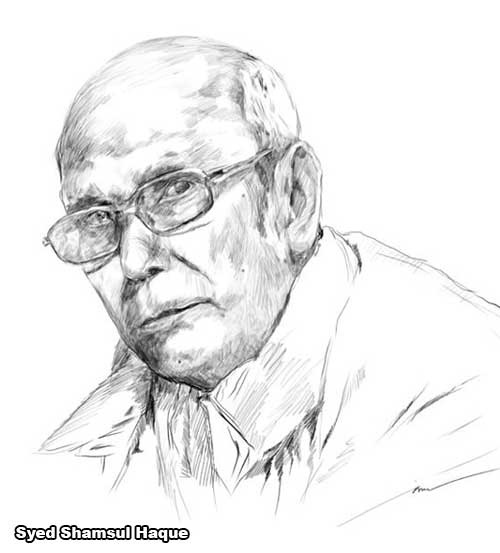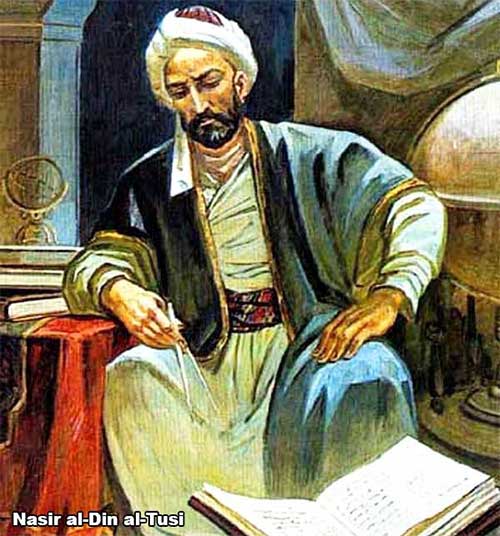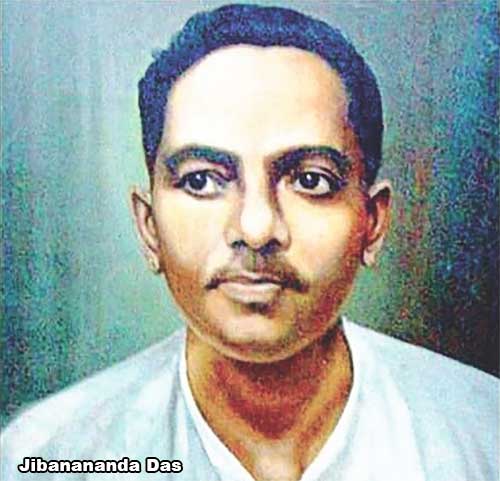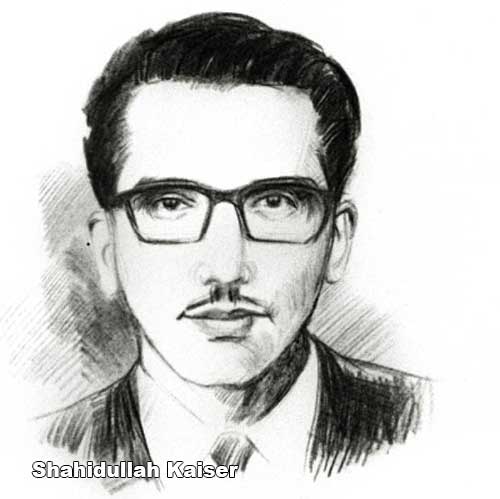
Syed Shamsul Haque is a towering figure in Bengali literature and cultural history. Known for his unmatched contributions to poetry, plays, novels, and screenplays, his legacy continues to inspire generations. His brilliance lies not only in his artistic excellence but also in his ability to capture the essence of the Bengali spirit in every piece of work. This article explores his life, literary achievements, and enduring influence comprehensively.
Early Life and Education
Born on December 27, 1935, in Kurigram, a small town in Bangladesh, Syed Shamsul Haque exhibited an early affinity for literature and art. Growing up in a culturally rich environment, he developed a deep love for storytelling, which later became the hallmark of his career. His formal education at Dhaka University provided the foundation for his literary pursuits, where he was exposed to Bengali and global literary traditions.
Syed Shamsul Haque's childhood was filled with curiosity and a thirst for learning. These formative years influenced his understanding of human nature, relationships, and society—elements that deeply colored his later works. His early exposure to rural Bengal also played a significant role in shaping his literary voice, which often resonated with the themes of rural simplicity and complex human emotions.
Pioneering Contributions to Bengali Literature
Syed Shamsul Haque's contribution to Bengali literature is vast and diverse. He is often referred to as one of the finest modern Bengali writers, blending traditional themes with contemporary styles. His works span across various genres, including poetry, drama, novels, and even screenwriting, showcasing his versatile talent.
Poetry That Touches the Soul
Haque's poetry is celebrated for its lyrical quality and profound emotional depth. His collections, such as Poraner Gaan and Boishakhi Jhor, remain timeless in their appeal. Through his poems, he explored themes of love, identity, and existentialism, often using vivid imagery to transport readers into a world of reflection and introspection.
Master of Drama
As a playwright, Syed Shamsul Haque was a revolutionary force in Bengali theatre. His plays, including Payer Awaj Pawa Jai and Nuruldiner Shara Jibon, are considered masterpieces. These works often delved into political and social issues, challenging societal norms and sparking intellectual discourse. His ability to create gripping narratives with strong, relatable characters made his plays widely popular.
Prolific Novelist
In the realm of novels, Haque's works like Neel Dangshon and Khelaram Khele Ja exhibit his narrative brilliance. These novels often intertwined personal and political themes, offering readers a multi-layered experience. His storytelling was characterized by its fluidity and the seamless blending of realism and imagination.
Alauddin Ali A Visionary in Music and Cultural Legacy
Syed Shamsul Haque shared a unique relationship with various cultural personalities, including the legendary Alauddin Ali. Their collaborations brought new dimensions to Bangladesh's cultural fabric. The visionary musician's contributions complemented Haque's literary genius, creating a synergy that enriched the nation's artistic heritage.
Cultural Impact and Legacy
The cultural impact of Syed Shamsul Haque extends far beyond his literary works. He was a vocal advocate for the Bengali language and identity, often addressing issues of nationalism and cultural pride in his writings. His works became a symbol of resistance during tumultuous times, inspiring movements and fostering a sense of unity among the Bengali-speaking population.
Haque's influence can also be seen in the modern literary scene, where many young writers draw inspiration from his style and themes. His ability to connect with audiences of all ages and backgrounds underscores his universal appeal.
International Recognition
Syed Shamsul Haque's works have been translated into multiple languages, earning him international acclaim. His participation in global literary events and his ability to convey the nuances of Bengali culture to a worldwide audience made him an ambassador of Bengali literature. Scholars and critics around the world continue to study his works, further cementing his position as a literary icon.
Personal Philosophy and Ideals
Haque was not just a writer but a thinker who believed in the transformative power of art and literature. He often spoke about the responsibility of writers to address societal issues and provoke thought. This philosophy is evident in his works, which frequently challenge readers to question norms and envision a better future.
#SyedShamsulHaque #BengaliLiterature #LegendaryLiteraryIcon



